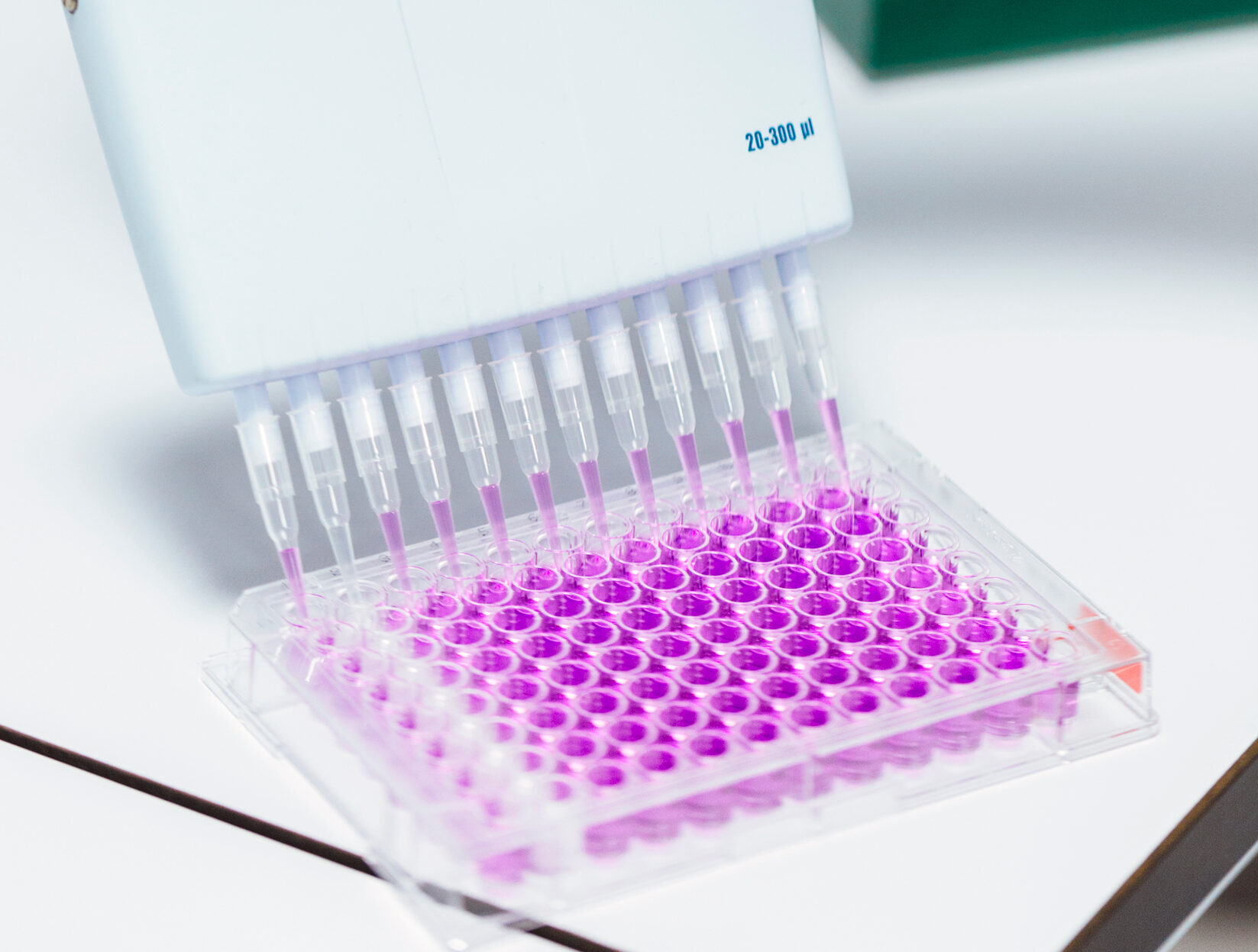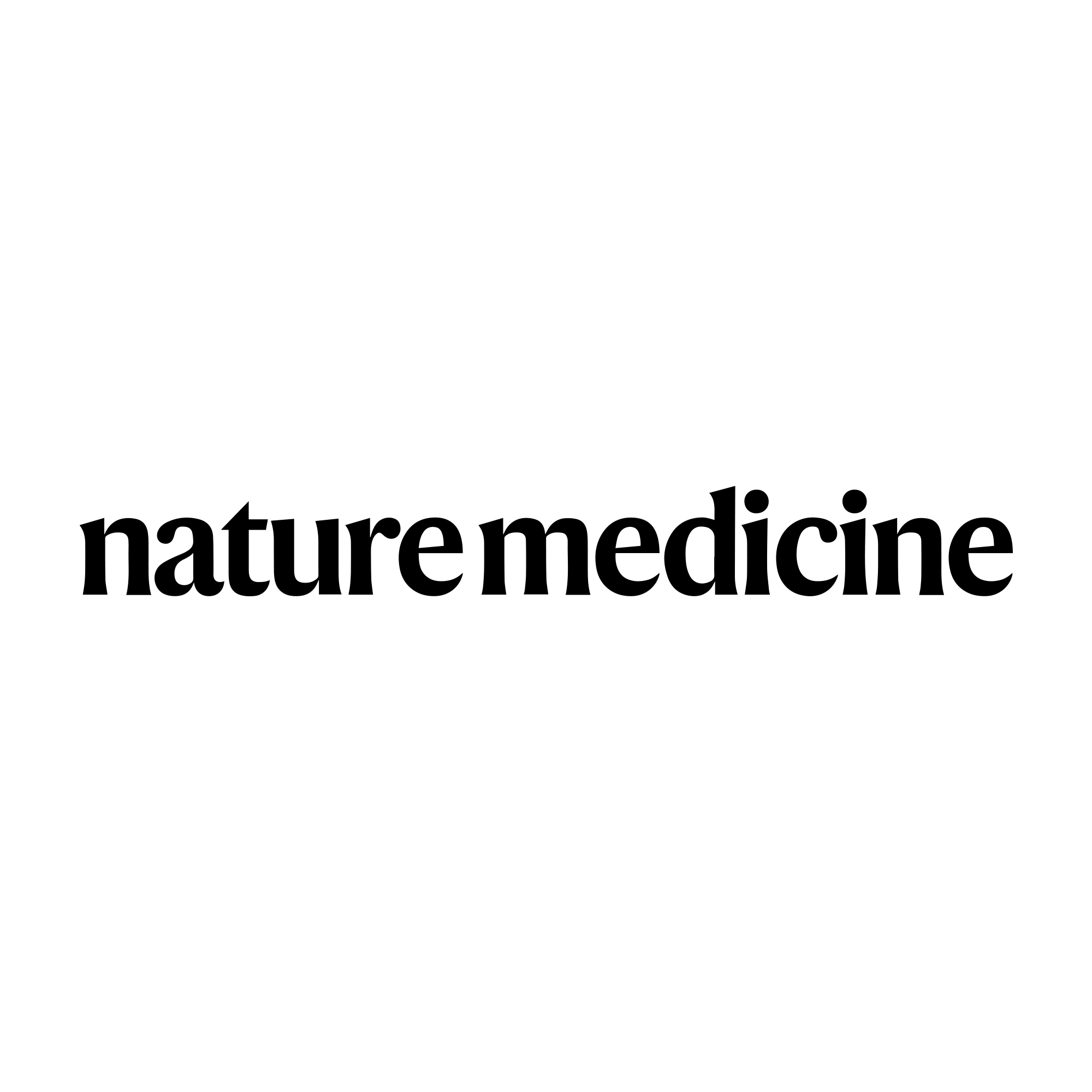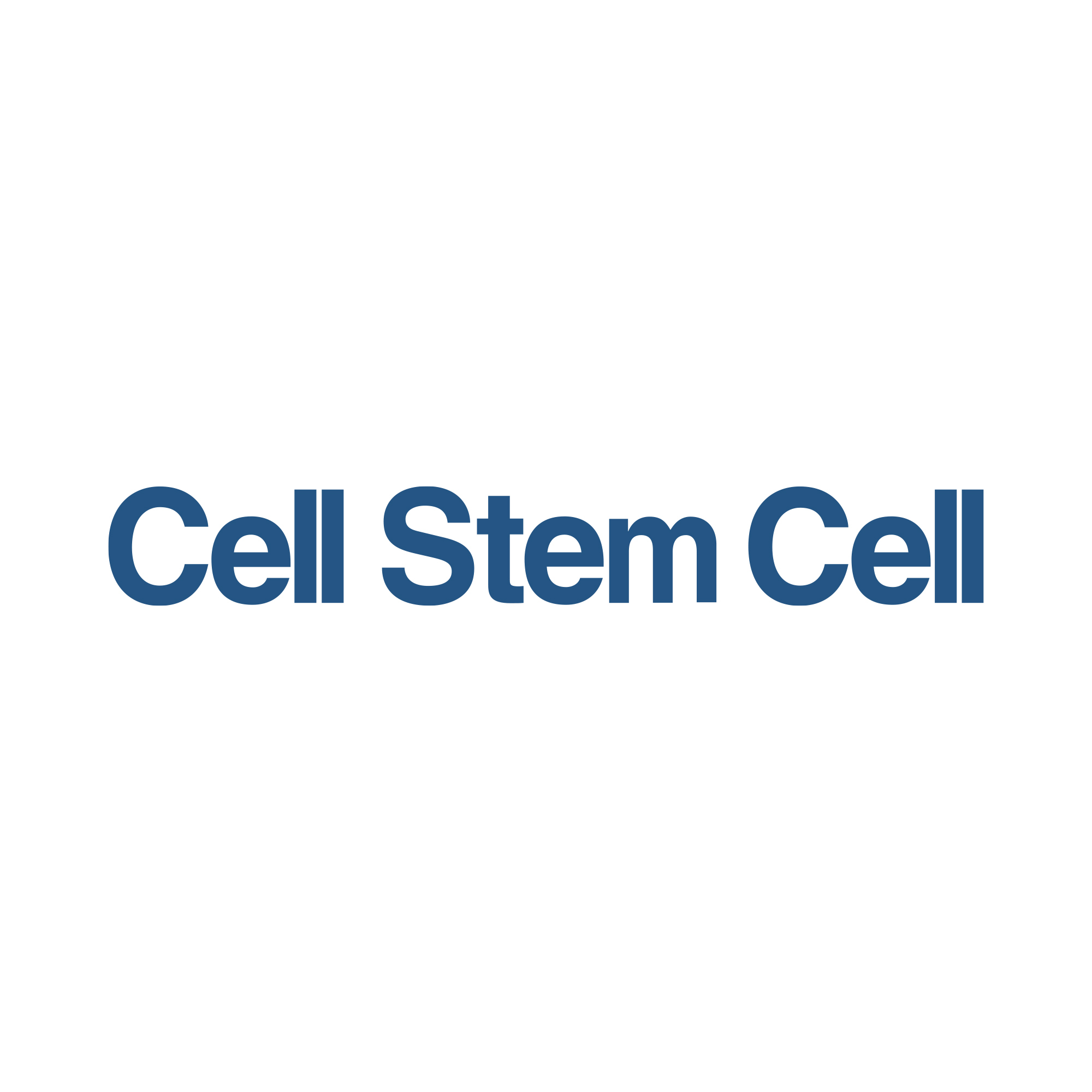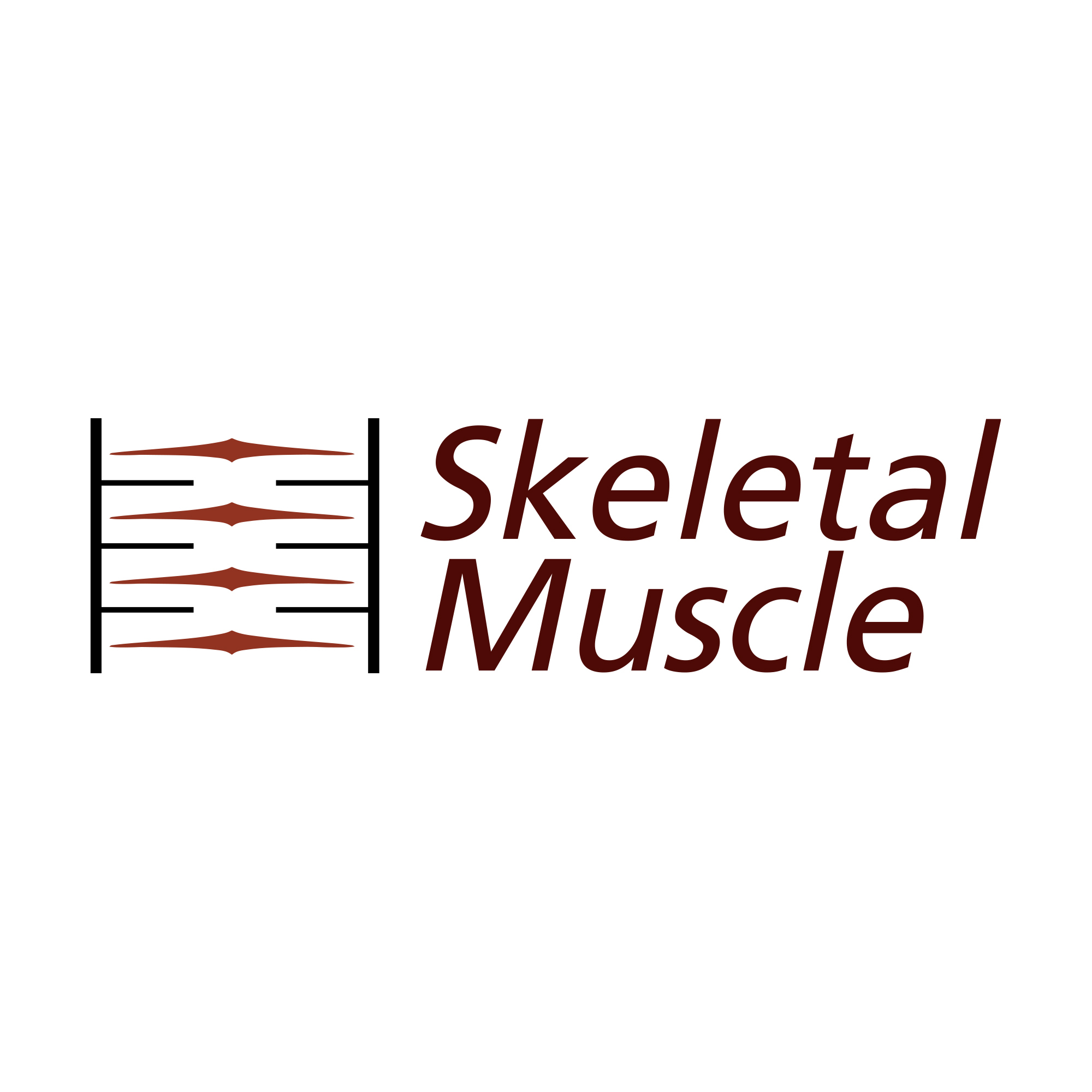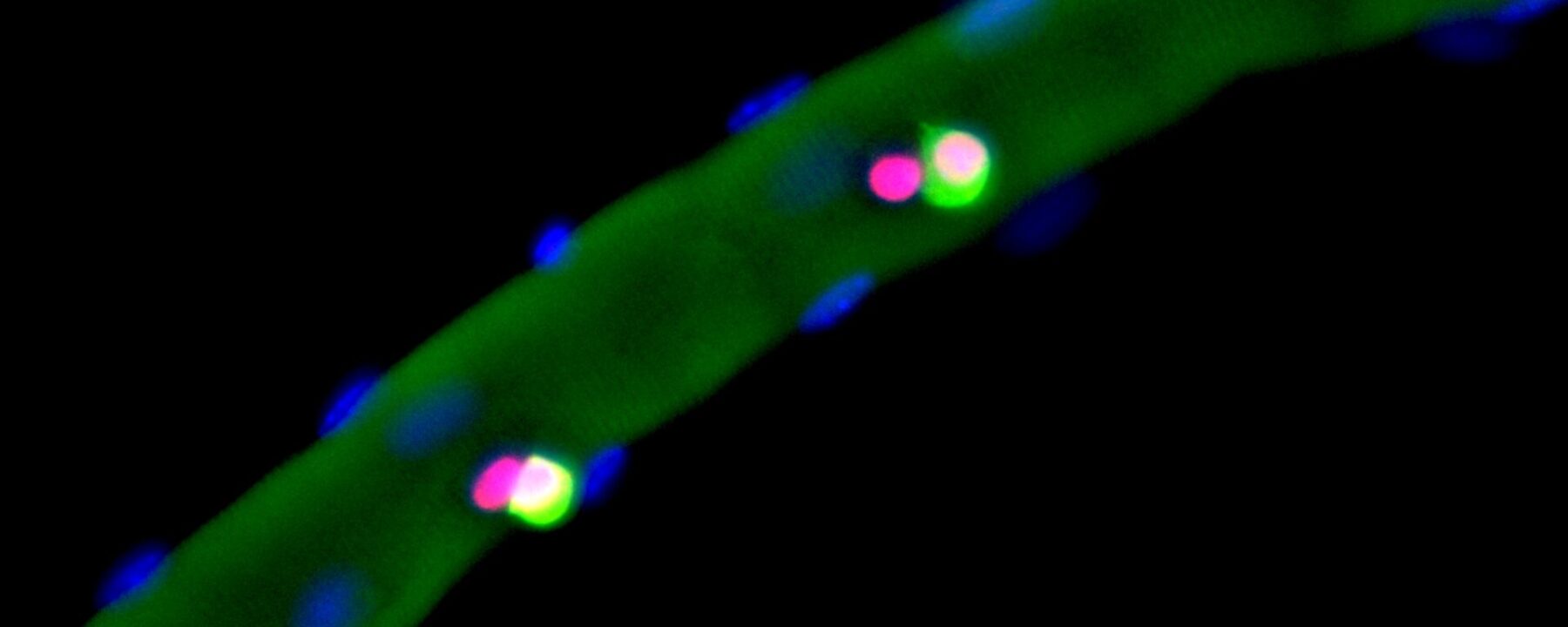
Our Science
Satellos was founded on decades of research in muscle biology that uncovered a critical insight: In Duchenne muscular dystrophy, muscle fails to regenerate as intended in response to damage. We discovered this occurs from a breakdown in how muscle stem cells divide.
Duchenne Muscular Dystrophy
Our scientific founder, Dr. Michael Rudnicki, and his team were the first to show that the dystrophin protein plays a role outside the muscle fiber — inside the muscle stem cell.
His research, published in Nature Medicine, revealed that dystrophin helps guide stem cells to divide asymmetrically, a process essential to muscle regeneration. Without this signal, the body can’t produce enough of the progenitor cells needed to repair and rebuild muscle.
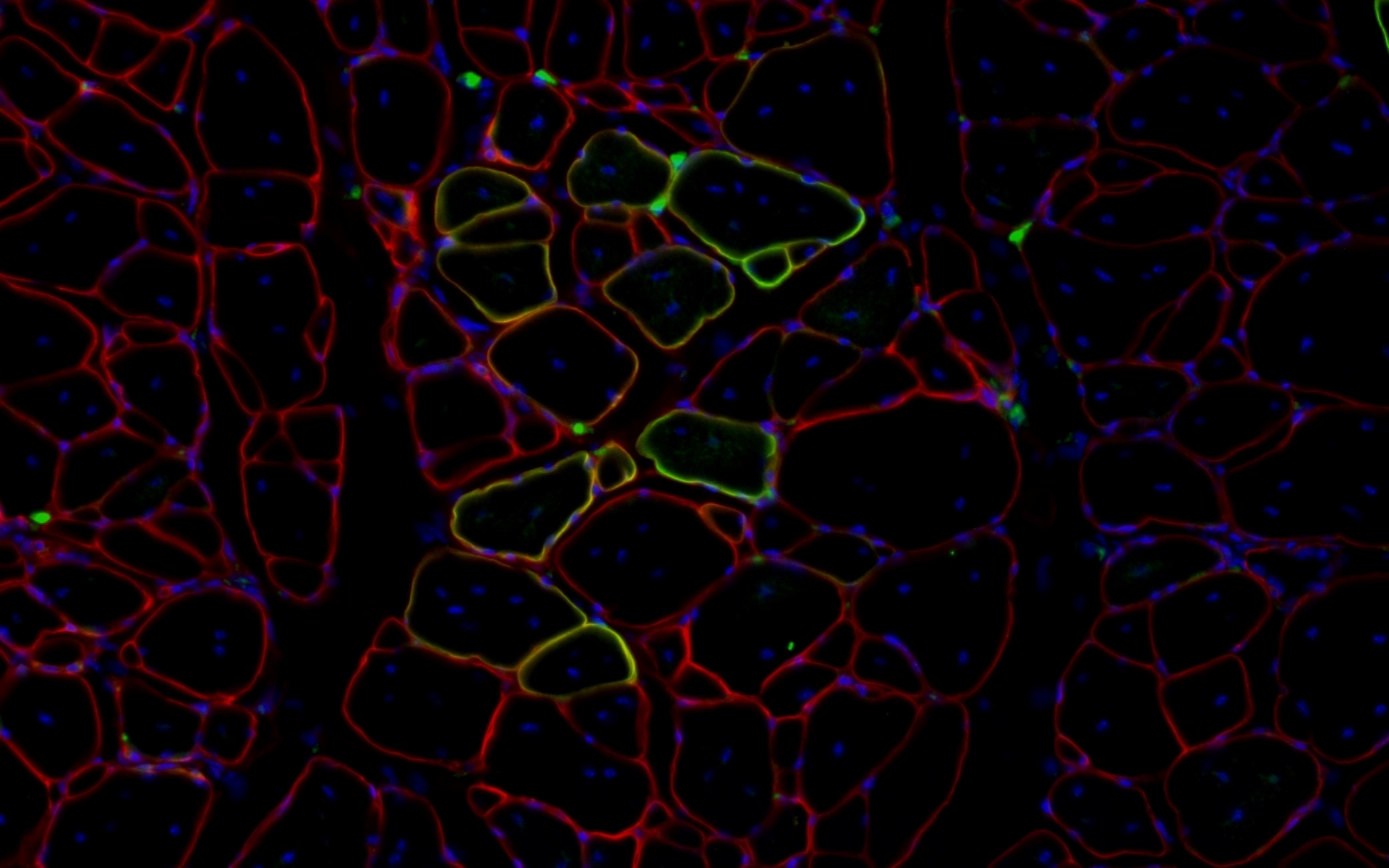

Pathway for Muscle Regeneration
Further research by Dr. Rudnicki and team showed Duchenne patients have abundant muscle stem cells, but lack muscle progenitor cells, which leads to a defect in muscle tissue regeneration. This research also led to the identification of AAK1, a member of the Notch pathway, that when inhibited is capable of re-establishing stem cell polarity to restore asymmetric muscle stem cell division and thus regenerate muscle, despite the absence of dystrophin. Satellos has identified a series of small molecule AAK1 inhibitors and is advancing a lead drug candidate to clinical trials for Duchenne muscular dystrophy.
View Duchenne